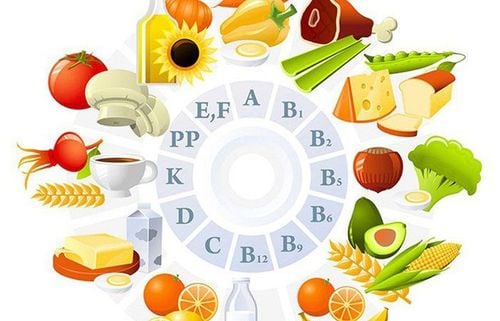Nutritional foods and scientific diets are increasingly attracting the attention of many people and there is also a lot of different information provided, however, you just need to remember the most basic things about nutrition and you should eat more of these important nutrients.
1. Build a healthy diet
The food you eat every day has a big impact on your health and quality of life. A good diet can improve everything, from brain function to physical activity. In fact, food affects all cells and organs of the body, functioning, working better, can significantly reduce the risk of heart disease and cancer, … the leading causes of death in the world.
To build a healthy diet, you should first start learning and referring to good foods in the following 3 main food groups: Starch, fat and protein. The body needs to be provided with these nutrients in a relatively large amount.
- Starch, fiber group: All starchy foods such as bread, pasta and potatoes. Vegetables, fruits, beans, fruit juices for fiber and some dairy products.
- Protein: Foods that provide the body with enough energy include meat and fish, milk, eggs, beans and vegetarian alternatives such as tofu.
- Fat: Main sources include nuts, seeds, oils, butter, cheese, oily fish and fatty meats, etc.
How much of each macronutrient you should consume depends on your lifestyle and goals, as well as your personal preferences.
Vitamins and minerals: Micronutrients are important vitamins and minerals that are needed by the body in smaller doses. Don’t forget to supplement your body with vitamins and minerals.
Some of the most common micronutrients you should know about include:
- Magnesium : Plays a role in more than 600 cellular processes, including energy production, nervous system function, and muscle contraction
- Potassium : This mineral is important for controlling blood pressure, fluid balance, and the function of your muscles and nerves
- Iron : Primarily known for its role in transporting oxygen in the blood, iron also has many other benefits, including improved immune and brain function
- Calcium : An important structural component of bones and teeth, and also an important mineral for your heart, muscles, and nervous system
- All vitamins: Vitamins, from vitamins A to K, play an important role in every organ and cell in your body.
All vitamins and minerals are “essential” nutrients, so you need to take in minerals and vitamins to keep your body healthy and free of deficiencies
If you have a diet full of plants and animals, your body will absorb all the micronutrients without needing to supplement.

Vitamins play an important role in the human body.
2. Nutritious foods you should add every day
- Vegetables: These should play a fundamental role in most meals because vegetables are low in calories but can still provide the body with important nutrients and fiber.
- Fruits: Fruits help provide natural sugars, micronutrients, and antioxidants that help improve health, giving you smooth, rosy skin.
- Meat and fish: Meat and fish are rich in protein. They are a staple in the human diet, although vegetarian and vegan diets have also become popular.
- Nuts, grains: These are natural sources of healthy fats.
- Eggs: Considered one of the healthiest foods on the planet, whole eggs are a powerful combination of protein, beneficial fats, and micronutrients.
- Dairy: Dairy products such as natural yogurt and milk are convenient, low-cost sources of protein and calcium.
- Healthy Starches: Starchy foods like potatoes, sweet potatoes, etc. are healthy and nutritious.
- Beans and legumes: These are great sources of fiber, protein, and micronutrients.
- Beverages: Water should make up the majority of your fluid intake, along with beverages like coffee and tea.
- Herbs and spices: These are often rich in beneficial nutrients.

Milk is a convenient source of protein and calcium.
3. Notes for a healthy diet
- Cooking healthy, choosing “whole” foods
You should cook at home to ensure delicious, nutritious, clean, safe and healthy meals, thereby helping to protect your family’s health, stay away from heart disease and other health problems.
Whole foods are natural plant foods, unprocessed and unrefined, or processed and refined as little as possible, before being consumed. Whole foods tend to be more nutritious and have a lower energy density, meaning they contain fewer calories and more nutrients than processed foods.
So stay away from packaged foods and fast foods because they are high in calories, high in fat, salt, and low in nutritional value (“empty” calories). Eating a lot and regularly will cause obesity and other heart-related diseases.
Try out healthy yet delicious recipes like grilling, sautéing, and using less oil and fat. Learn important tips for safe food preparation, modify recipes, and then enjoy. Remember, your new healthy diet is helping to reduce the risk of health problems for your family.
- Build a healthy menu
To prepare delicious, nutritious menus, you will need fresh, clean ingredients, so you should choose fresh, unprocessed foods.
- Foods to avoid:
Sugar products: Foods high in sugar, especially sugary drinks, are linked to obesity and type 2 diabetes.
Trans fats: Also known as partially hydrogenated fats, trans fats are linked to serious diseases, such as heart disease.
- Nutritional Supplements
Supplement your nutrition with a healthy, balanced daily diet.
In certain cases, it may be beneficial to supplement your body with functional foods to provide one or more nutrients. Adding nutrient-rich foods to your diet will help to overcome deficiencies and meet all daily needs.
Supplements such as magnesium, zinc and omega-3s can provide additional benefits if you are not getting enough of them from your diet.
An example is vitamin D, which is obtained naturally from sunlight and foods such as oily fish. For example, women who are pregnant or trying to become pregnant will be advised by their doctors to take a prenatal vitamin containing folic acid.
- Combine good nutrition with other healthy habits
Nutrition is not the only thing that is important for optimal health. Following a healthy diet and exercising can help you feel better and sleep better. Research has shown that sleep is just as important as nutrition in avoiding disease risk and helping you control your weight.
Drink plenty of water. Hydrate when you are thirsty.
Finally, try to minimize stress. Chronic stress is linked to many health problems.
Talk to your doctor or dietitian for dietary advice that fits your health condition, lifestyle, and eating preferences. For example, your doctor may recommend reducing the amount of salt in your diet if you have high blood pressure.
Talk to your doctor or dietitian about whether nutritional supplements might be right for you. Be sure to ask about the possible side effects of any nutritional supplements you are considering – and whether they might interact with medications you are taking.





